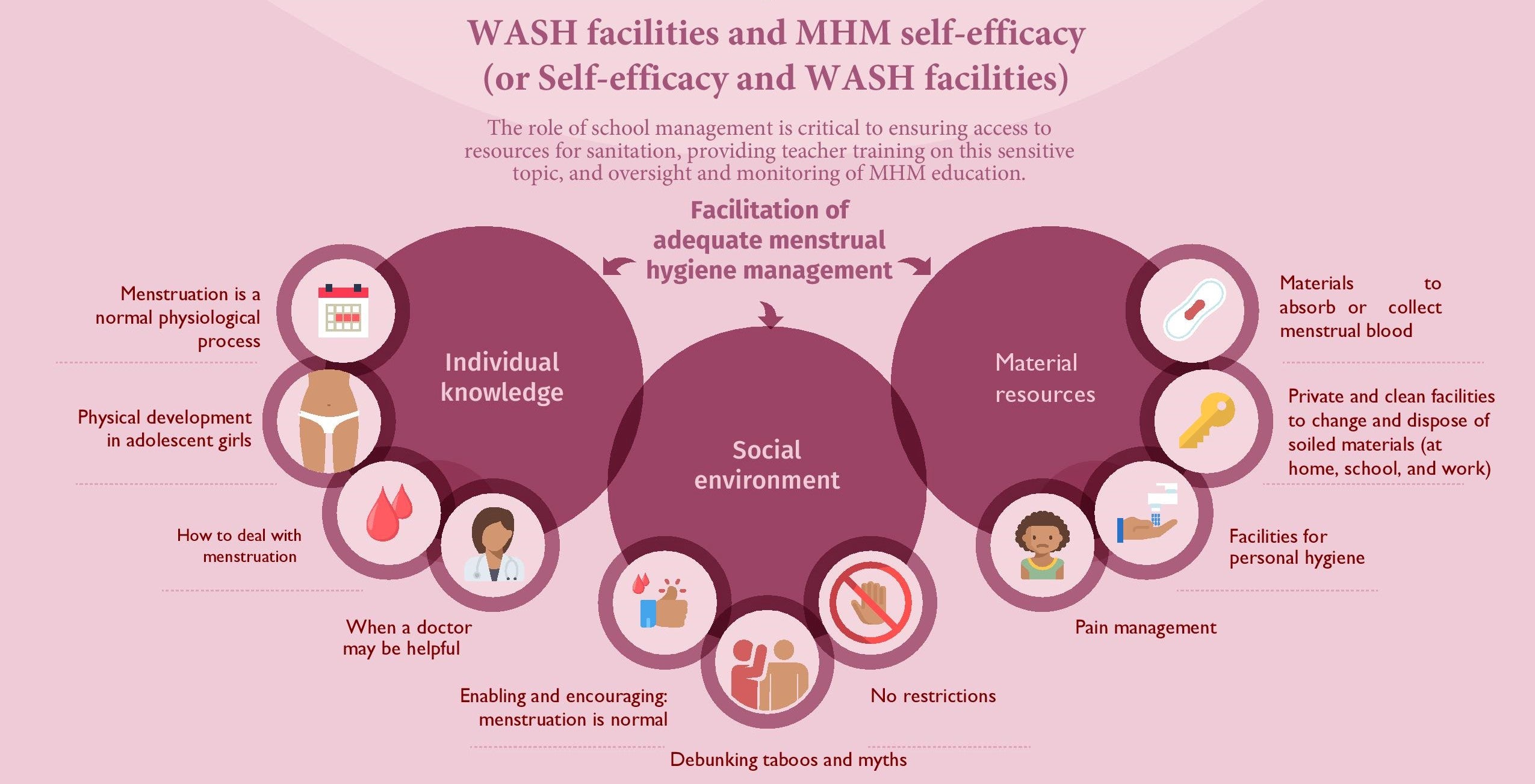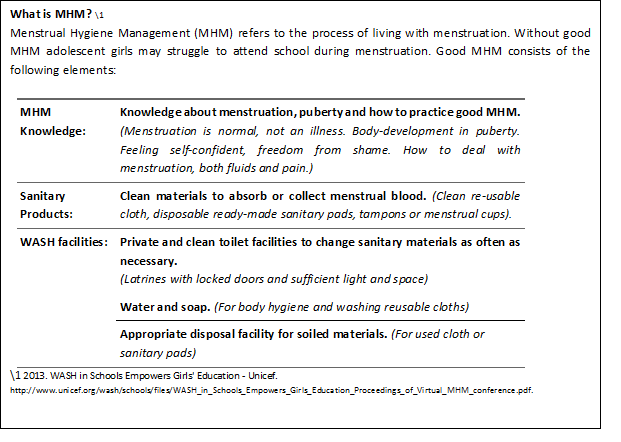The problem is partially rooted in institutions, who having imperceptibly supplanted traditional & cultural rites of passage often fail to recognize the extent of the need for robust, wholistic and sustained alternatives. Girls experiencing menarche not only require WASH infrastructure, but meaning; they not only need materials, space and privacy to change and dispose of menstrual products, but an environment free from aspersions, taboo and social restriction.

Last year the World Bank’s Water and Education Global Practices conducted formative research in the Greater Accra Metropolitan Area (GAMA), as part of support to Ghana’s US$ 150 million Sanitation and Water Project. The research tracked multi-faceted interventions nested within a large-scale WASH upgrade project targeting over 200 Junior High Schools in 11 Municipal Assemblies across Accra in Ghana. The researchers studied the basic WASH infrastructure girls require to make MHM possible; what information can effectively be taught in schools; and whether standalone elements, or a combination – e.g. MHM-related hardware and software (MHM education) – was needed to achieve success.
One interesting finding of the formative research is that girls’ self-efficacy to manage their menstruation and engage in school may be dependent on her attitude about the sanitation interventions provided in the school. In other words, even if facilities are constructed and MHM information is delivered as designed and planned, they may be ineffective simply because the girls do not feel comfortable in the facilities, or simply, they find facilities difficult to use, or find them unacceptable based on their MHM needs. Also, school engagement, or the extent to which students are involved in, attached and committed to the academic and social activities in school, plays a prominent role in preventing academic failure, promoting competence, and influencing a wide range of adolescent health outcomes, where MHM plays an important role. The interaction between improper MHM and lack of adequate sanitation facilities create a negative effect on well-being of girls and their emotional cycles. This interaction propels negative feedbacks and adverse behaviors that affect their attention span in the classroom, and their academic engagement, leading to isolation from peers, teachers and school friends. As MHM is introduced in schools, behavioral engagement is improved primarily with higher adherence to class rules, involvement in learning activities including athletics and school clubs, asking questions and demonstrating effort, concentration and attention.
The study also shows that a girls’ MHM experience is shaped by institutions’ interpretation of policies at the local level. In the GAMA Project, WASH and MHM policies are espoused by the Ministry of Education and the Ghana Education Service’s School Hygiene Education Program; these are translated at the Local Government level by Municipal Assemblies who oversee School Management Committees, Parent Teachers Associations and school health coordinators. How these actors mobilize resources, interrelate, and the extent to which girls enjoy well managed WASH facilities, individual knowledge and social support was seen to vary from school to school. Some schools promote girls’ awareness by organizing a ‘Mbaa Nkomo’ (literally, ‘female chat’) session, where girls raise confidential concerns by placing questions in a box which the teacher removes and discusses with the group. Other schools did not have face to face discussions and teachers were unsure how to broach the topic. This finding suggests that introducing incentives, creating an MHM measurement system, and encouraging leadership at multiple levels can result in better performance.
There are vast opportunities to learn how MHM can be instrumental in large-scale urban education projects, and to share lessons learned with the broader WASH in Schools community around the world, research institutions, universities, government agencies, think tanks and NGOs. In Ghana, we took a first step to qualitatively understand these dynamics, but hope to learn more about the long-term effects of MHM within government-World Bank supported projects moving forward.
Keeping girls engaged in school is beneficial to society as a whole – it provides the “girls effect dividend,” an economic rationale for girls education, due among others, to the large effects on future earnings and the economy in general. Evidence has also accumulated around the advantages of girls’ education in enabling women’s participation in the workforce, and how this improves GDP per capita, infant and child survival, and the education of future generations. With adequate management and instrumentation of MHM, more girls have a chance of maximizing benefits from school at a critical age, and contributing to the SDGs and socio-economic progress. 





Join the Conversation